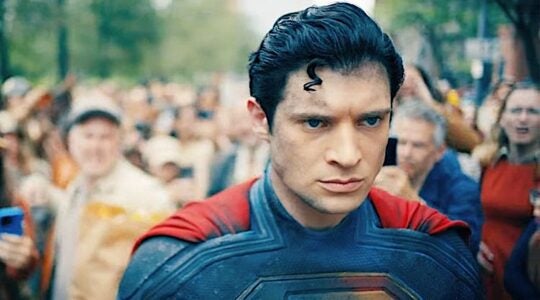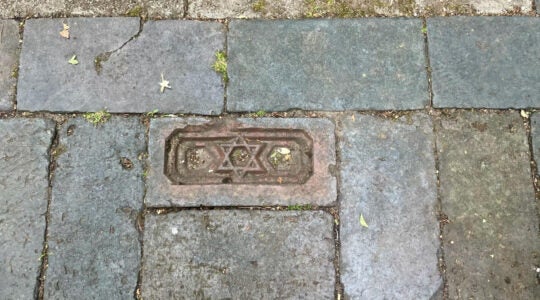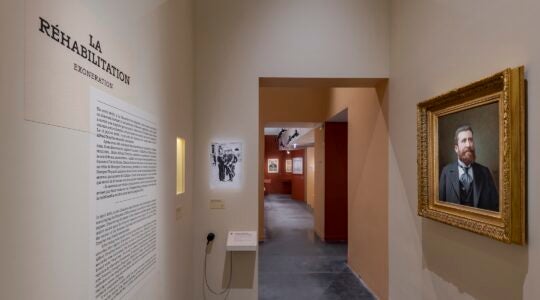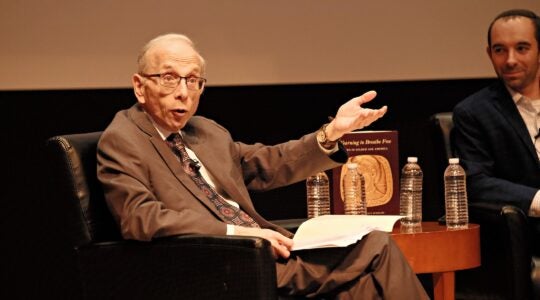The Haggadah – the book we read at the Passover seder– is remarkable because as early as the 13th century (and possibly hundreds of years earlier) Jews were being taught lessons of inclusion. Inclusion recognizes the range of strengths, weaknesses, abilities, disabilities and modes of operating that are represented amongst an ordinary cohort of people. In fact wide diversity exists within families or communities. Diversity manifests itself in many ways. We are taught at Pesach to take note of differences and ensure that absolutely everyone at the table is encouraged to fully participate in proceedings. And of course, it’s not just a Pesach obligation. If we take the following five principles of inclusion and apply them throughout the year, how much better our lives would be.
1. Recognition of diversity amongst us
More than any other time of year, Pesach is the time when there is an expectation that everybody in the family will participate. So, from the outset, we need to decide who is and isn’t a member of the family. Given our aging population and the recognition of the vast number of people who function differently from what is described as ‘normal’, it Is highly likely that our family itself will be made up of individuals with diverse competencies.
Just consider these questions. Are our elderly parents welcome at our Seder? Are our children welcome–even the noisy and the very young and the insolent and the tantrumming? What about the teenager who insists on coming in jeans? What about the aunt who is boring and pinches children’s cheeks? What about the vegans and those with food allergies? What about the uncle with ADHD, the child who bumps into and spills things at the table because of poor vision, the cousin with a broken leg or who permanently uses a wheelchair? What about the nephew who could not really be described as neurotypical? This pretty much describes my family–almost all of them fail to fit the image of the “ablist benchmark male”. They just don’t look like good looking, sporty, well-behaved, high achieving, polite young adults or wealthy, healthy grown men. Recognition of diversity is a cornerstone of Passover.
2. Making Space For Outsiders
Throughout the year, hospitality is an important Jewish activity. From Abraham’s example, we are told that “welcoming guests is greater than receiving the Divine presence.” But the Haggadah goes one step further. We are required to invite guests. Not just the people with whom we like to rub shoulders, but specifically anybody who is hungry. Given that there is a high correlation between poverty and having a disability, a physical or a mental illness, being a victim of domestic violence and being an outsider for any other reason – the person or people you are meant to invite are likely to be different from you. And without this invitation, these people may be left outside – excluded from – the most basic rituals of community.
3. We Were Slaves
At the Festival of Passover, we do not simply tell a story of our past. Is not just that Jews were slaves who came out of Egypt and liberated by God. It Is that we, personally, were those slaves, we personally escaped from Egypt and personally enjoy the experience of freedom. Us – not them. In itself, this is a very important message of inclusion.
Imagine the slaves coming out of Egypt. They been beaten, subjected to heavy labour and denied adequate food and water, deprived of freedom to determine their own fate. Few had good organizational skills, less would be ideal teachers, most could offer only physical strength and persistency. We were broken people. We were bent, we were lame. We were weak–and many of us could no longer see or hear because of the treatment meted out to us. We were dependent and lacked confidence in our abilities. We were illiterate. We suffered from post traumatic stress disorder. We were no doubt depressed and anxious. Whatever we were, we were not able-bodied, ordinarily abled or a group of genius musicians or Nobel Prize winners.
If we’re honest, many of us still have these attributes. Many of us struggle in many many ways. That we were all once slaves means that we should be able to understand what it’s like to not be considered a full member of society. And we should be able to recognize the diversity amongst us, is a strength every bit as much as it’s a weakness.
4. Differences Must Be Accommodated
At the beginning of the Haggadah, before we get round to reciting the story of our escape from Egypt to freedom, we are asked to pause and think about all of those who talk to us. When the youngest child asks “why is this night different from all other nights?”, instead of an answer to the questions, the child is told that we were slaves in Egypt–and the rest of the story and the other explanations will have to wait. Because before we even begin to fulfill the mitzvah of recounting the story of the Exodus, we are asked stop. We need first, to look at the people around the table, and insure that we give explanations of Pesach and all aspects of the Seder that is pertinent to them.
In the original text, we’re told of Four Sons, who are described as the child who is wise, the child who is wicked, the child who is simple and the child who does not know how to ask. While there well may be 4 such children present, the story is thought of as metaphorical (or is it allegorical?) It is generally considered that the children (who could be daughters as well as sons) are types of Jews or types of learners. Understanding the fourth son has posed a particular challenge. In different Haggadot he has been described as: ‘not in capacity of asking’; ‘one who wits not to ask’; ‘the son who is unable to ask’; ‘the son who has not been endowed with an enquiring mind’; ‘the son too young to enquire’; and ‘the son who does not yet even understand enough to ask questions’. While the latter two focus on the age of the son, the former four emphasize his mental competence unrelated to his age. In no case, however, is there the assumption that this child is uneducable. Instead, this poses a challenge not only to educators, but also to the person/s running the Seder.
The Torah instructs us that we must teach our children diligently. At Passover we learn that the obligation to teach our children cannot be fulfilled if we only meet the learning needs of the elite or even of the average student. We, as a community, must take note of the objective of teaching – which is to ensure that all Jewish children gain knowledge and understanding of Jewish history and Jewish law. In other words, the requirement of educating our children is focused on the learning outcomes of each student. So any teaching strategy that only engages a percentage of students is unacceptable.
5. Ensuring Full Participation of All
The final lesson we can draw from the Passover Seder, generally, and from the story of the Four Sons in particular, is that everyone can and should be taught in the same setting. We shouldn’t take some people out of the room because they have “special needs”. The most special need of all that we have, is to be included as an equal. The Seder is designed to appeal to each type of learner and to include different people differently – from written text, to oral reading; from detailed discussion to symbolic representation; from the taste of the food; to the appeal to the sensations. While young children may not last the distance of the Seder (which in many houses finishes after midnight), there is an expectation that the majority of participants will stay in the room. Engagement is a key to the learning experience.
Conclusion
The festival of Passover has many names. These include the Festival of Spring; the Festival of Coming out of Egypt; and the Festival of Freedom. To this we should add that Passover is a Festival of Inclusion. This lesson, like the many other messages that come from the reading of the Haggadah and of our experience of the Seder, is one that should be practiced throughout the year. We should always remember that members of our family and our community have a wide range of different skills and abilities. If we want to act as a family or a Jewish community, we must practice inclusion all year round.
At Passover we must remember that 20% of our community is regularly excluded. The Hebrew word for Egypt is Mitzraim, which translates as “the narrow place”. On the Festival of Inclusion, we need to move from the narrow place which blinkers recognition of human diversity and the need for its celebration. From the Festival of Inclusion onwards, we should apply the principles of Passover. Every Jew must have an equal and equally participatory place at the table – independent of any difference that may be perceived.
Melinda Jones feminist human rights lawyer, disability advocate and Jewish educator. She has published 11 books & over 50 peer-reviewed articles covering topics such as the rights of people with disabilities; racism, freedom of speech & racial hatred; the rights of the child; inclusive education; and the health rights of those identifying as LGBTI.
The New York Jewish Week brings you the stories behind the headlines, keeping you connected to Jewish life in New York. Help sustain the reporting you trust by donating today.




